 Today's guest, author Dorie Graham, presented a program to my local chapter about the different types of intelligence and the different ways people learn. She then applied these principles to creativity. I found the program fascinating and asked her to share it with us today.
Today's guest, author Dorie Graham, presented a program to my local chapter about the different types of intelligence and the different ways people learn. She then applied these principles to creativity. I found the program fascinating and asked her to share it with us today. She'll explain the different types of intelligence and help us figure out which kinds we are. Welcome, Dorie!
At one time I worked with a nonprofit educational corporation dedicated to bringing alternative education to Atlanta's children. For years I studied alternative education and one of the most interesting books I came across in my studies was Dr. Dawna Markova's THE OPEN MIND: 6 PATTERNS OF NATURAL INTELLIGENCE.
I found this book life altering, not only in how it changed my perspective on working with the children involved with our nonprofit and in home schooling my own children, but in its implications for my work as an author. I was able to take the concepts in the book, which helped me to understand how my mind works, and apply them to my writing projects.
As writers, we find ourselves in various learning situations, either at conferences, workshops, or when researching a new subject, so I’ll begin with the educational aspects. Then I’ll show you how during the writing process we seem to turn this model around, and how understanding how your individual mind is wired can help you trigger the state of consciousness needed for each stage of the writing process.
What is Natural Intelligence?
According to Dr. Markova, learning takes place on three levels of consciousness: the conscious, the subconscious, and the unconscious, in that order. We take information in through our conscious mind. Think of this as the mouth. We sort and process the information through our subconscious mind. Think of this as the stomach. Finally, we assimilate the information through our unconscious mind, just as the body assimilates the nutrients from the food we eat.
Imagine the stages of consciousness as a spiral, with the conscious state at the smallest point and the unconscious state opening into ever-widening circles. The conscious state triggers beta brainwaves. The subconscious state triggers alpha brainwaves and the unconscious triggers theta-delta brainwaves.

Perceptual Languages are Visual, Auditory, and Kinesthetic.
You are Smart in the perceptual language that triggers your consciousness.
You are Centered in the perceptual language that triggers your subconsciousness.
You are Sensitive in the perceptual language that triggers your unconsciousness.
There are six Patterns
AVK: Smart - auditorily; Centered - visually; Sensitive - kinesthetically
AKV: Smart - auditorily; Centered - kinesthetically; Sensitive - visually
VAK: Smart - visually; Centered - auditorily; Sensitive - kinesthetically
VKA: Smart - visually; Centered - kinesthetically; Sensitive - auditorily
KVA: Smart - kinesthetically; Centered - visually; Sensitive - auditorily
KAV: Smart - kinesthetically; Centered - auditorily; Sensitive - visually
How to determine your pattern?
• Describe your first kiss.
Cues from the language you’re smart in will be easier to recall and those you’re sensitive in will be harder, if you remember them at all.
• Teach someone something you know.
We tend to think others learn the same way we do, so will start with the language in which we’re smart.
• Analyze your speech.
We tend to speak in terms of the language in which we’re smart. (i.e. “See what I mean?” “Play it by ear.” “I’ll be in touch.”)
• Think of something that was hard for you to learn and determine which perceptual languages were involved.
A task involving the two languages in which you’re smart and sensitive will be difficult, unless you bridge the gap with a process in which you’re centered. (i.e. I’m a VKA and can’t read music, because it requires pairing a visual cue with an auditory cue. I might learn by jumping on a huge keyboard, like in “Big.”)
How can writers use this?
• Determine your pattern
• Understand the stages of consciousness used in the writing process
• Trigger the state if consciousness most helpful to your current stage
Imagine the spiral again, though this time we begin at the top, where our minds are open in the brainstorming stage. We plot in a more subconscious state and we edit and proof in a focused, conscious state. As far as the actual writing process, I think the stage of consciousness depends on the type of writer.
If you’re a plotter and plan every detail in advance, you may write in a more conscious state. If you’re the sort who writes as you go, letting the story unfold as you type, you may write in a more open-minded state. Think about what works best for you and experiment.
Do you need music playing while you write? Do you need to write in long-hand? Would a story board with pictures better help your creativity? Once you understand your own personal process, you’ll be better able to put yourself in the stage of consciousness needed at each phase of a project.

A word about characterization
Though Dr. Markova is quick to point out that these patterns are not to be confused with personalities (you’ll find a variety of personalities within each pattern), it occurs to me that as writers, we could layer in the patterns as character traits.
She describes the following relationships:
Match – two people involved in a relationship share the same natural intelligence pattern.
Conflict: the relationship can become too companionable and lose its sense of excitement.
Single Point – two people share one common point in the pattern, as in AVK and KVA are both visually centered. The single point helps them to find common ground.
Conflict: Often only come to terms at that single point. Depending on which point they have in common, different conflicts can arise. In the above example the two are in complete opposition in the perceptual languages in which they are smart and sensitive.
Scramble – two people have no common perceptual points. This is the hardest relationship of all. Relating can seem like the other person is from another planet.
Conflict: These two literally perceive the world in different ways. Real effort and understanding of the other person’s pattern is needed to make these relationships work. Feelings can be easily hurt and misunderstandings abound.
Resource:
The Open Mind: Exploring 6 Patterns of Natural Intelligence by Dawna Markova, P.h.d.
- What do you think your Natural Intelligence Pattern is and how did you figure it out?
- What do you remember most about your first kiss?
- It was easy for me to figure out I'm auditorily sensitive, because being surrounded by sound and things like intense conversations open my mind and send me off on tangent after tangent until I'm so spaced out I forget where I started. What makes you space out?
Leave us a comment and let us know what you think. Nancy is giving away a $10 Barnes and Noble gift card to one commenter today.

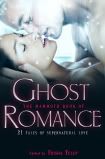
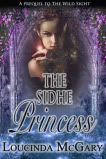


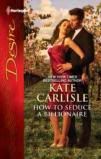

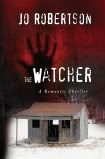

























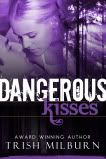













































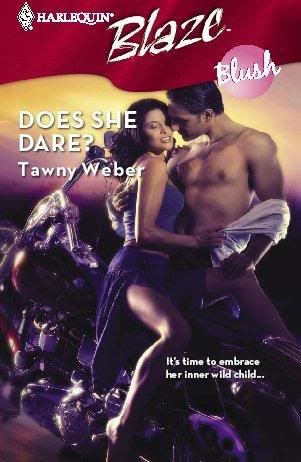





60 comments:
Wow, Dorie! I remember learning about different "intelligences" as a way of figuring out how kids learn best and also as a way of figuring out how we best respond to situations, but hadn't heard of how to apply it to writing/writers! Interesting post!
Fedora, well done on the chook.
Dorie, what a fascinating article. Thank you for sharing what you know with us.
Well done Fedora he is back in The States after a long break in Oz have fun with him
Dorie
Facsinating post I think I tend to learn by listening and watching there is a lot to think about and lots to learn along the way and I agree people learn in different ways I have trained a few people at work and one of the first questions I ask them (they are all adults)is what way is easiest for them to learn. For me it has always been watching and listening then hands on. And even though we may all do the same job we do things a little bit differently but come up with the same end results.
What I remember about my first kiss it was wet LOL
Thank you Nancy for inviting Dorie today
Interesting post.
I know that I'm way more visual than auditory, but that's about it. I'm not sure what kinesthetical means.
As for my first kiss, would that be the first kiss I was participating in? I hardly remember that one.
well done Fedora
Dorie... what an interesting post... I think I am a visual person.... I watch other people and also read some insructions as long as they are not too involved... I also teach some craft and show people how to do things... and most times there is more than one way to explain so do the easiest way for them
Interesting post, Dorie. Thanks for bringing Dorie to the Lair, Nancy.
I'm not quite sure how to apply those learning patterns to myself - how do I apply what I remember about my first kiss?
How about I tell you how I work and you help me out?
My creativity is visual - I brainstorm using mindmaps on a white board. Ideas are triggered by things I see.
My writing tends to be auditory in that I hear the scenes in my head, rather than seeing them. I need to read things aloud to see if they sound right.
I also think I learn better using auditory cues - I certainly remember things I've heard better - though there is probably a little of the kinesthetic in there, in that writing things down or creating a written visual helps.
I learn best by doing as someone tells me how (I think the auditory part is the explanation of how or why my brain needs to remember *g*)
I can't write/create with music on - it distracts me. But I can work with noise. I can edit or brainstorm or mark pupils books *g* with noise or music. I also prefer to make things with music on.
I think I'm KVA. I learn by doing. For example I can play chords and read music for piano and guitar but I'm tone deaf and cannot distinguish between the notes and know that that's a c or a g sound. Also I learned how to knit by watching and copying their actions. Or is that more VKA? Can you be a combination?
Interesting!
Yes I do remember my first kiss, I was in 6th grade returning from ice skating when a young man walked me home from the rink. I remember it was very cold and wet ...my nose was running! GROSS!
I love to have music on when I'm working in the kitchen, doing chores, on the computer. I used to do my homework with music in the background too.
Thanks for sharing this interesting information! Dorie
Fedora, congrats on the bird!
Dorie, I think I'm VAK. I get visual images first, then verbal or auditory, and movement last.
It's funny, my very first kiss, a big moment in anyone's life, has receded in haze. I remember my first kiss with the dh much better, and the first cue I get is visual memory.
Daz, thanks for stopping by.
Helen, that's interesting about the way you train people at work. Is there a particular type of learning that seems dominant among your co-workers?
Hi, Sheree--I think kinesthetic means movement, but Dorie will join us in a while, and she can clarify.
Hi, Barb--Do you find that some people pick things up faster when you show them, others when you explain?
Anna, I couldn't write with music for a long time, either. The beat and the words distracted me. I can how work with music that doesn't have lyrics. I use the Alias soundtrack when I write spies, even though it's very techno-metallic. I still prefer to write in quiet, though.
Laurie, LOL on the runny nose! It's a cute story.
I play (sort of--I used to be better) the piano and can read music, but I can't identify notes by their sound. I can tell when I hit a klinker, though.
Wow, so much to absorb! I'm going to be chewing on this for the rest of the day! Thanks, Dorie.
Thanks for all the comments, everyone. I'm glad you found this information interesting.
Helen, it's great you ask people how they learn when you're training.
Sheree, kinesthetic is through touch or movement. When I'm plotting, it helps if I move around, go for a walk or take a shower. Does that help?
Barb, you sound like you could be visually smart. I'm all about reading the instructions. I have to see it to remember it.
Anna and all, don't get discouraged if it takes you a while to figure out your pattern. It isn't easy! Anna, I'm guessing you're auditorily smart. I'm auditorily sensitive. When I hear things they go into the vast black hole of my unconsciousness. I have to see it to remember it. My daughter is auditorily smart. She can hear it and remember it. You sound the same. Since you brainstorm visually, I'd guess you're visually sensitive, so you may be an AKV.
Laurie, you could be a KVA. I'd lean toward kinesthetically smart, because you'd want to see a knitting diagram or read instructions if you were visually smart. Also, you remember the feeling of the kiss.
As far as being a combination, there's always someone who won't fit a pattern, but I think most of us will fall into one of these. If you get stuck at some point in your writing, try stimulating a different perceptual language and see what happens. The experimenting can be fun!
Hey, everyone, I guess I should have signed that last post. This is Dorie!
Dorie, so interesting! I'm puzzled as to where I fit in there, and like Eilis I'll be thinking about it all day. Thanks for the great post.
Nancy, thank you for sharing Dorie's subject matter with us. How very interesting.
I don't know what I am. I learn best when I listen to a speaker, or an RWA tape, so I guess that means I'm auditorily smart - but I'm not sure about the rest. When I'm writing a scene, I see it acted out in front of me like a movie - I just record via keystrokes what's happening. Does the process of typing make the process kinestic or is it visual in that in my mind I see my character's expressions, their physical movements, the setting, etc.? I'm definitely a pantser - that's all I know (grin).
First kiss? That was way, way, way too long ago. I'm not even sure when and with whom that first kiss occurred. I remember the details surrounding the first kiss with my husband-to-be though. I can relive that moment down to the setting in a heartbeat.
This is a cool blog. *LOL*
I'm pretty sure I'm VAK, just from reading your blog. Mainly because I love to read and I mostly learn by reading and auditory secondly. (They're pretty close--like if I go to class, I can almost pass the test because I listen well and take good notes.) I also say stuff like "See you later" and "Talk to you later" very equally. I'm least like K. Awkward, awkward, awkward.
So I went to a site to see if VAK fit me as a pattern--and took a little test, and yes, VAK seemed to match up best with me. Though VKA was pretty good too.
And what do I remember about my first kiss? That it was sloppy and with way too much tongue. And I did not enjoy it.
Nancy, thank you so much for inviting me here. It's always fun to share this with others. I prefer not to write with music, as well. I'm more of a plotter and do my actual writing in a more focused state. As a VKA I love music, am deeply moved by it, but get way too distracted by it when I try to write. I'll forget what I'm writing and get carried away with the music. :)
Donna, honestly, I'm not sure where typing falls. It may depend on your focus. Is it the feel of pressing the keys, the clicking of the strokes (I love that sound) or are you focused on the words appearing on the screen (that's where I tend to focus). I think writing long hand has a more kinesthetic impact. If you're up to sharing the details of your first kiss with your husband-to-be, that might give us more clues. What's the first thing you remember?
MsHellion, sounds like you're on the right track, though I'm sorry to hear about your first kiss. Hopefully things have improved since then. :)
Dorie
Very fascinating, Dorie. Thanks, Nancy, for bringing her to the Lair today.
I remember studying the different intelligences during my teaching program. It's very interesting to apply these principles to the teaching/learning venue. I'm not a kinesthetic learner at all, but many, many students are so I had to learn to help them learn via their bodies.
Great post!
LOL, Helen, on your first kiss being wet. Had an eager suitor, huh?
My first kiss was short, soft, and sweet, nothing wet, no tongue. I think I was twelve.
Kinesthetic people learn by using their bodies, Sheree; they're typically athletes, dancers, people who learn by doing rather than having something explained to them.
Hi Berta, thanks for stopping by!
Jo, in this model keep in mind that you would be a kinesthetic learner at some point, though it may be you're kinesthetically sensitive. When most people say "I'm a visual learner or a kinesthetic learner" what they really mean in terms of this model is they are smart in those perceptual languages. Since we use all the perceptual languages in this process, we learn in some way from each of them. The trick is figuring out which perceptual language triggers which state of consciousness.
Sheree, my oldest daughter was kinesthetically smart. I homeschooled her and would drill her on vocabulary words each week before we tested her. I would hand her the sheet of words for her to look over and memorize (I'm visually smart, so expected her to absorb them visually). When I drilled her, she would grab the potted tree beside the couch and rock it. It was a fake tree, so it wasn't harmed, but she rocked it so much it rounded the bottom of the basket and we had to prop it just so against the wall.
I'd get so angry when she did this, because I didn't think she was paying attention. When I discovered this model, I realized she was kinesthetically smart and desparately trying to focus. I spared the tree after that by giving her play do to work with while we studied.
Many kids in school are kinesthetically smart and have issues learning in a traditional setting. I call that Rock-the-Tree Syndrome. :)
Dorie
What an interesting topic!
It's probably telling that I can't really absorb the information easily when presented in a written way like this. But if I sat in your class, I would be all over it. I bet you could tell me what kind of learner I am because if it's new information, I need a class. A lecture--to have it explained to me.
First kiss...hmmm....I remember how I felt. I "see" it as a picture--where I was sitting in a car and he was standing by the open car door. I remember the rush and the zing. I have no memory of the sounds around at all...I don't even remember what he said afterward.
I never realized I didn't remember any sound from that moment until this blog. Wow.
Ideas are triggered for me by things I hear usually. All the best ideas have been either that--for instance, I was once standing outside a door and the peculiar mix of a fan running in the hallway with the muffled voices on the other side of the closed door sparked something that ended up a very cool project---OR I get the ideas in dreams.
Donna said:
I don't know what I am. I learn best when I listen to a speaker, or an RWA tape, so I guess that means I'm auditorily smart -
Donna, this is me too. Dang. But if I'm learning to knit, I have to actually DO that--watch it done--have somebody show me and then do it with my hands to get it.
Shoot...this is harder than it seems at first! *grin* Now I wanna know!
Interesting post! I think I'm more auditory person.
Aikakone: Hiljaisuus
http://www.youtube.com/watch?v=89C0EXVTcgg
Hi, Eilis--Thanks for stopping by.
Berta, thanks for stopping by!
Donna, I'm glad you thought it was interesting.
When I listen to RWA tapes, I find myself wandering into whatever story I'm working on now, and I have to pull back out and rewind because I've lost track. I wonder what that means.
Ms. Hellion, thanks. You wrote:
if I go to class, I can almost pass the test because I listen well and take good notes.
I have to listen AND write it down to absorb it fully. I had a student a while back who never took notes--never--on the lectures, which figured heavily on the tests, and yet came out with a B for the semester. I figure he must've been an auditory learner.
Dorie, I'm glad you're having fun. I think this whole concept is way cool.
Hi, Jo--When you have students in a classroom who are kinesthetic learners, how do you approach that?
Hi, Cassondra--Isn't this intriguing?
You know, I have to learn any kind of handiwork by doing it, too, having someone watch me and help if I make a mistake.
Minna, thanks for stopping by.
Ssorry I was absent for a few hours, everyone. I taught my last class of the semester today!
AND I have graded every piece of student work that was in my hands and returned those today, too. Student conferences later in the week, and then the exam next week, and then I'm DONE!
Whee!
(The students are probably saying that, too, but louder. *g*)
Darn that's interesting! It pretty much confirms that my husband and I are total opposites. Our conflict usually ends up with me caving in just for some peace. But it's never boring lol.
Catslady, I'm not sure where my dh and I fit.
Thanks for stopping by.
Cassondra, it is telling that you like hearing the lectures. It's possible you're auditorily smart, but your kiss memory and the fact that sounds trigger ideas could mean you're KVA. Do you remember things you hear? When do you get the most spaced out? Don't get discouraged, it is difficult to determine and may take time.
Nancy, your mind wanders when you listen to the tapes, because that spiral is opening. The trick is to determine how far. Are you auditorily centered, like you thought earlier, or do you get spaced out to the point you may be auditorily sensitive? And yay on your last class!
catslady, you can share this with your husband and learn how to better communicate and support each other.
If anyone wants, I have a summary of Dr. Markova's book I'd be happy to share. It gives points on dealing with relationships with people of other patterns and gives more info on all the patterns. Just e-mail me at dorieg@bellsouth.net and I'll send it to you.
Dorie
Dorie -
On typing, no - I don't focus on it at all, (My agent would gladly verify this as she proofreads my work before it goes to the editor. Proofing is NOT my strength - grin). So I guess the kinestic part is not really part of my process.
I remember with visuals. I remember what was said in a meeting by remembering who sat where around the table. So I think you're telling me that to unlock that plotting/brainstorming creativity - I need to set the stage and invite the muse to paint a picture...or maybe create a shadow box or collage of my characters and set that where I can see it.
I did that once. Loved the shadowbox. Never finished the book. Scratch that idea.
Loved the shaking the tree concept. I believe my son learned that way which doesn't go over well in a classroom environment. He's out of school now. Knowing this, I wish we could have gone back and tried a different approach.
Dorene, hmm. I may space out to the point of being auditorally sensitive. But I do learn most effectively in a classroom setting from the combination of hearing a lecture and taking notes. Is it possible the note-taking focuses the listening?
And thanks. It's nice to have the main work done.
Donna, collaging has never done much for me, either. I know a lot of people swear by it, but I think I'd get more caught up in doing that or the shadow box than in focus on the book.
Okay, I get it now. Thank you. This is like what I told one of my young nephews once, that there are three basic types of learning: visual (by looking), auditory (by hearing) and muscle memory (by physically doing something over and over again).
What a fascinating post!
Nancy, thanx so much for inviting Dorie to join us in the Lair today.
I think I may be kinestetically centered because when I listen to a lecture or attend a meeting I always have to take notes. I usually never look at them again, but the physical act of writing stuff down helps me remember it. But I think I might be visually smart because I do like to "see" things when I'm writing, and I never listen to music. I tend to tune out sounds when I'm being creative.
Thanx again for such an INTERESTING topic!
AC
Nancy, if you're a VKA, the notes are a visual that helps your mind focus so you can take in the information. If you're writing longhand, I'd say that's a kinesthetic action that's helping you process it. If you're a VKA, like me, you have to write down what you're hearing or you'll forget it. I take lots of notes during lectures.
Sheree, yes, that's it, but in this particular model we all learn through each of those perceptual languages. It's just that some of us take the information in visually, some auditorily and some kinesthetically, then we use the other perceptual languages to process and then assimilate that information.
Dorie
Loucinda AKA Aunt Cindy, I'm glad you found it interesting and it sounds like you may have figured out your pattern. I hope you can use this in a learning or creative process going forward.
Dorie
AC, glad you enjoyed it. I notes during lectures, but I do look back at them later, to study.
Hi Dorie! Chiming in late to say hi! I love this stuff...I'm Visual/Kinesthetic with a pretty strong auditory too.
Glad you're with us!
Thanks, Jeanne, I love this stuff, too. Hope you find it all useful!
Dorie
Nancy, thanks again for inviting me. I may not make it back tonight. I get up at 4:30a most mornings to work out, so I'm fading a little here. If anyone wants a summary of Dr. Markova's "The Open Mind: Six Patterns of Natural Intelligence" or if you have more questions, please feel free to e-mail me at dorieg@bellsouth.net.
Dorie
Hey, Duchesse--Glad you made it!
Dorie, it has been an interesting day. I don't envy you that 4:30 wakeup call. I am SO not a morning person!
I'm not sure what my writing style is, but I know I wasn't able to free up my left brain until I got a computer. Apparently the typing goes to fast that my fingers can keep up with the thinking. Sort of like playing the piano by eliminating the in-between process, if that makes sense.
This is one unique post which I enjoyed greatly. Definitely visual since I am very observant and after that audio. First kiss with a boy in grade five. wonderful.
Hi, Petite--Glad you enjoyed it!
Thanks for clarifying, Dorie. When I was trained in my teaching program, we used the Myers-Briggs Personality Indicator and also various learning styles. This applied to teaching in various learning styles. As you said, I think I'm mixing up various kinds of intelligences, learning styles, and personality indicators.
Very interesting, isn't it?
Nancy said, "Hi, Jo--When you have students in a classroom who are kinesthetic learners, how do you approach that?"
Oh, anything that got them out of their seats and moving. If they had to memorize Shakespearean lines for a test, we'd go outside, form a circle and toss a ball while giving a quote. The person catching would identify the speaker. Silly stuff like that, but the kids (sophomores) loved it.
We did a lot of tableaux and group projects which required them to be up and about around the room.
Post a Comment